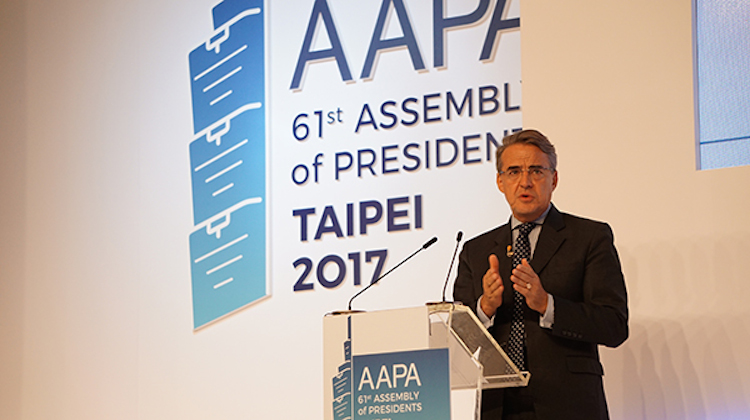
The director-general of the International Air Transport Association has criticised governments for shutting borders in light of more transmissible variants of COVID.
“Instead of a boost from the year-end holiday period, we got even more restrictions,” said Alexandre de Juniac. “Governments tightened borders in a knee-jerk response to a virus mutation.”
He added that governments are “not interested” in a balanced approach but are instead aiming for a zero-COVID world, which is an “impossible task”.
In mid-December, both the UK and South Africa identified so-called ‘mutant’ variants of the virus that are potentially more transmittable. The UK has subsequently re-entered a national lockdown and banned residents leaving the country for leisure purposes.
Speaking at a media briefing on Tuesday, de Juniac said, “The slow pace of progress in the crisis is so frustrating.
“We are working tirelessly with governments to keep flying safe and reduce the risk of COVID-19 importation via travel with the implementation of the ICAO CART recommendations proposals to replace quarantine with COVID-19 testing.
“But, as Brian pointed out, the industry’s situation is still perilous. In fact, it got worse over the year-end holiday period.
“While we still see airlines turning cash positive within the year, the near-term picture is bleak.
“Instead of a boost from the year-end holiday period, we got even more restrictions. Governments tightened borders in a knee-jerk response to a virus mutation. Canada, UK, Germany, Japan and others added testing to their COVID-19 measures without removing quarantine requirements.
“In other words, they have chosen policy measures that will shut down travel. This approach tells us that these governments are not interested in managing a balanced approach to the risks of COVID-19. They appear to be aiming for a zero-COVID world.
“This is an impossible task that comes with severe consequences—the full extent of which it would be impossible to calculate. But, with this approach, we know for sure that: the travel and tourism economy will not recover; jobs will continue to disappear; and the lockdown’s toll on people’s mental health will continue to grow — particularly on those who are separated from loved ones.
“A more balanced public policy approach is needed — one that is based on testing as a replacement for quarantines so that we can begin addressing the severe side-effects of COVID-19 policies.
“Science tells us that travellers will not be a significant factor in community transmission if testing is used effectively. But most governments have tunnel-vision on quarantine and are not at all focused on finding ways to safely re-open borders — or alleviate the self-imposed economic and mental health hardships of the lockdowns.
“I will conclude by repeating a quote from the UN Secretary General, Antonio Guterres. He emphasised the urgent need to re-start flying by saying that:
“‘Aviation is an important engine of our world and will play a critical role in lifting the world to recovery from COVID-19. Let us ensure it receives the support it needs to keep the world’s nations connected and united.’
“The support starts with consistent, well-reasoned, scientifically supported policies to manage the risks of COVID-19 and travel. That is the antithesis of what we witnessed over the holiday period. Our top priority for 2021 is to change that!”
The comments are de Juniac’s first major intervention since November, when he said aviation’s recovery had “hit a wall” after new figures revealed passenger traffic has flatlined.
Last week, new stats from Flightradar24 revealed the COVID-19 pandemic led to 41 per cent fewer commercial flights globally in 2020 than 2019.




